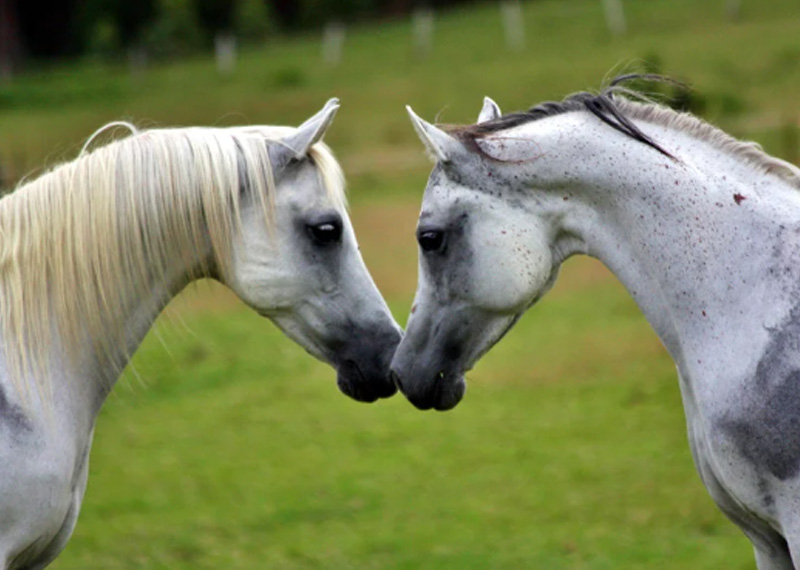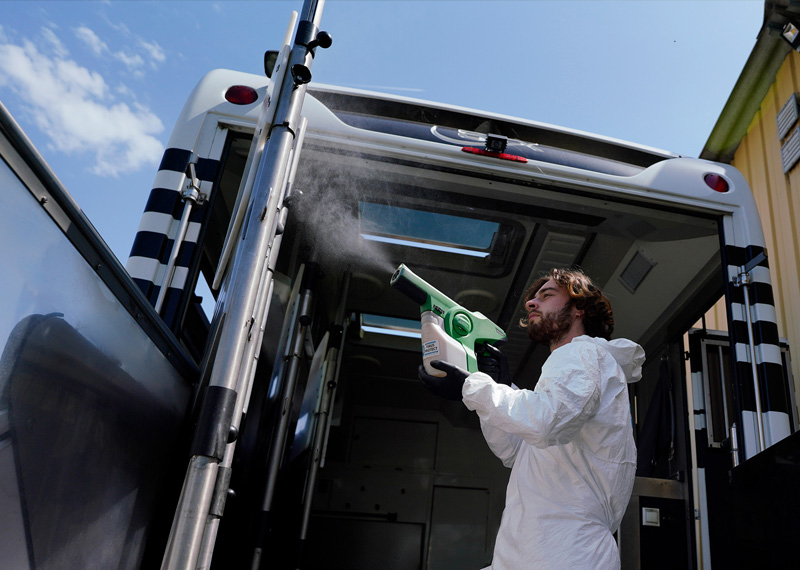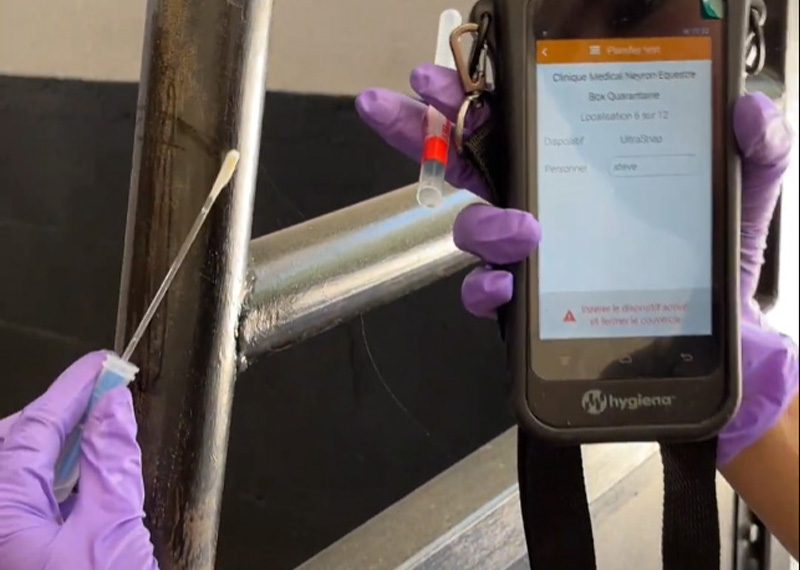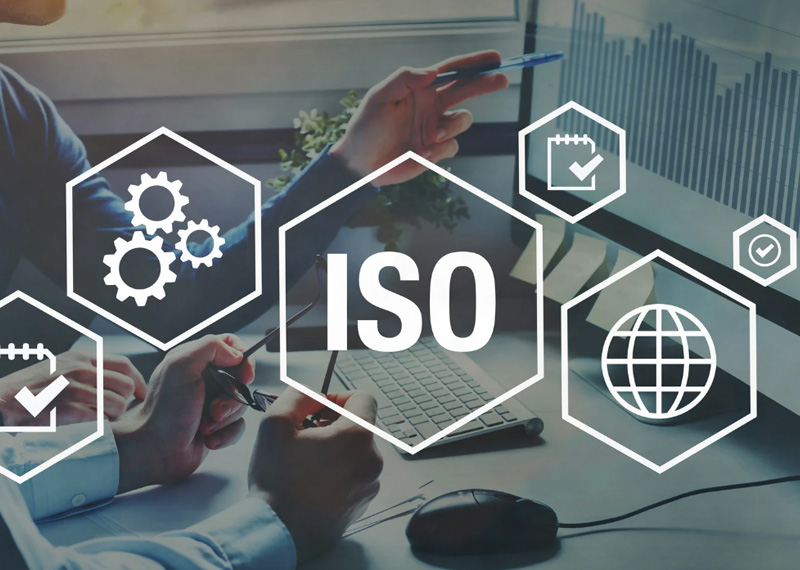why disinfect ?
The abortion rate of equine rhinopneumonia EHV1 can rise up to 90% among broodmares. Infectious diseases, both bacterial and viral, are a common cause of mortality in foals: 45% in foals under 24 hours old and 69% in foals aged 24 hours to 7 days.
In the equine breeding environment, disinfection plays a crucial role in maintaining the health and welfare of horses, especially foals who are more susceptible to infections. Here are the main challenges of disinfection in this sector:
Rapid Spread of Diseases: Breeding facilities often gather a significant number of horses in close contact, which can facilitate the rapid transmission of infectious diseases, whether bacterial or viral, such as equine influenza, rhinopneumonitis, or equine infectious anemia.
Vulnerability of Foals: Young horses have a less developed immune system, making them particularly vulnerable to pathogens. Neonatal diseases, such as diarrhea and pneumonia, can have severe consequences and require special attention in terms of prevention and disinfection.
Management of Facilities and Equipment: Regular disinfection of stalls, rest areas, care, and feeding equipment is essential to prevent the spread of diseases. This represents a significant logistical challenge, especially in large breeding operations.
Isolation and Quarantine: Establishing dedicated facilities for the isolation of sick or newly arrived horses to prevent disease transmission to the rest of the herd is crucial. This requires additional space and strict management.
Resistance to Disinfectants: Inappropriate or excessive use of disinfectants can lead to microorganism resistance, making disinfection strategies less effective.
Awareness and Training: Staff must be properly trained in disinfection protocols and aware of the importance of these measures to prevent disease outbreaks.
Costs and Accessibility: The costs associated with purchasing effective disinfectants and implementing comprehensive disinfection protocols can be prohibitive for some breeders, especially for small operations.
Environmental Impact: Chemical disinfectants can have an impact on the environment. Therefore, it’s important to choose products that are both effective and environmentally friendly.
The Devastating Impact of Rhinopneumonitis
Rhinopneumonitis can wreak havoc in a breeding operation: 90% of mares abort following external contamination. Contamination occurs through contact between horses but also through contaminated equipment and poorly disinfected surfaces.
Vaccination can limit the damage but does not provide 100% protection. There is also no 100% effective treatment. A mare losing her foal is a total loss for the breeder: the expenses incurred (breeding, ultrasounds, dietary supplements) and the loss of the sale of the upcoming foal can represent tens of thousands of euros.
How PhotoACTIVE Equine can help you
PhotoACTIVE Equine can significantly aid breeders in the equestrian sector by addressing key challenges related to disease prevention and environmental hygiene. Here’s how this innovative solution can be beneficial:
Enhanced Disease Prevention: With its powerful antimicrobial properties, PhotoACTIVE Equine can effectively reduce the risk of diseases such as rhinopneumonitis by killing pathogens on surfaces and equipment. This can help prevent external contamination and the spread of infections within the breeding facility.
Long-lasting Protection: Unlike traditional disinfectants that may require frequent application, PhotoACTIVE Equine offers long-lasting antimicrobial activity. This means that surfaces stay protected for extended periods, reducing the need for constant reapplication and thus saving time and resources.
Safe for Animals and Humans: PhotoACTIVE Equine is designed to be safe for use around horses and humans, minimizing the risk of adverse reactions or health issues related to chemical exposure. This safety profile makes it an ideal choice for environments where horses, especially vulnerable foals, and humans are in close contact.
Cost-effective Disease Management: By reducing the frequency of applications and providing effective disease prevention, PhotoACTIVE Equine can help breeders save on the costs associated with veterinary care, disease treatment, and the loss of foals due to infections. This can contribute to better financial outcomes for breeding operations.
Protecting Investment in Breeding Stock: By minimizing the risk of infectious diseases that can cause abortions or affect the health of valuable breeding stock, PhotoACTIVE Equine helps protect the significant investment breeders make in breeding fees, prenatal care, and maintenance of their mares and stallions.
Environmental Sustainability: PhotoACTIVE Equine can offer an environmentally friendlier alternative to harsh chemical disinfectants, aligning with sustainable farming practices and reducing the ecological footprint of equine breeding operations.
Reputation and Trust: Implementing an advanced and effective disinfection solution like PhotoACTIVE Equine can enhance a breeder’s reputation for maintaining high health and safety standards, building trust with clients and partners in the equestrian industry.
Overall, PhotoACTIVE Equine presents a comprehensive solution to the complex challenges of maintaining biosecurity and preventing infectious diseases in equine breeding facilities, supporting the health and productivity of the breeding stock and contributing to the success and sustainability of breeding operations.




